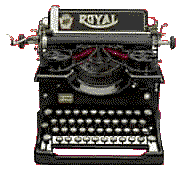| |||
Unless correspondents ask us not to, this Website will post selected letters that it receives and invite open debate. |
Paul Vuksanovich writes from Alberta, Canada, Thursday, June 6, 2002:

You haven't read Mein Kampf?
I AM amazed that "you haven't read Mein Kampf"! I have just finished rereading your excellent Göring biography, and would like to refer you to the jacket blurb -- The Times calls you "one of Britain's foremost historians". Until the Deborah Lipstadt case the John Keegans of the world were quite comfortable in agreeing with that description. Your failure to give in to the Spielberg/Hollywood version has made you unpopular in the "Holocaust" community, but the "Holocaust denier" label is not accurate. In the Göring biography for example there are numerous accounts of Nazi actions against the Jews, including the famous reference to the "final solution", and there is no attempt whatsoever to "deny" the fact that the Jews were severely persecuted and killed in very large numbers. Indeed you illustrate this quite clearly. Have I read you correctly?
I merely wish to express amazement that you haven't read Hitler's book. You don't really read Mein Kampf, instead it screams at you. It is tedious and turgid and verbose, but no one who wants to understand Adolf Hitler and the rise and fall of the Third Reich can possibly get by without studying what he has to say--least of all one of Britain's "most distinguished historians" on the subject.
Hitler's hatred of the Jews is expressed in the clearest of language, and his theories and ideas of race and history and his vision for Nazism and the German people are spelled out for the world to see. Nothing is hidden regarding his basic beliefs and purposes.
The German public lapped it up -- it was a huge best-seller, the royalties made Hitler a lot of money, and was nothing less than his open platform for all the events that followed his attainment of power.
What is forgotten is that the American Henry Ford (called a "great man" by Hitler in Mein Kampf) had earlier expounded equally vicious hatred of the Jews in his works The International Jew (1919) and his company newspaper The Dearborn Independent.
Anti-Semitism was not a German invention, and as historian David Kertzer has shown in his excellent book The Popes Against The Jews, last but certainly not least let's not forget the good old Catholic church!!
By the way-- a personal voucher for your credibility as a researcher. In Göring you describe how Russian prisoners were "eating grass." No historian except yourself has described this unbelievable scenario -- and the only other account I have ever heard was from my father, who as a Serbian Royalist officer imprisoned in Germany in 1941 watched through the barb-wire as the first Russian prisoners were brought to his camp -- and ate the tall grass in the field down to the ground.
Perhaps someday an historian such as yourself will also recount the SS massacre by machine-gunning of 51,000 Serbian, Polish and other prisoners-of-war at Moosburg in 1945. Did this really happen? Another totally forgotten event lost in the annals.....
![]()
German Government tries to ban | Simon Wiesenthal Center tries to ban book from giant Internet bookstores | Internet comment on antisemitism provoked by such bans | Amazon still banning sales at request of German justice ministry | voted one of the 100 books of the 20th century -- banned from Frankfurt book fair | Swedes fail to ban | Czech publisher charged | for sale, in Arabic | a blueprint of Hitler's plans for WW2? | Royalties to go to unspecified US charity | H A Fowler is indignant that Mr Irving has not read it | Canada bookstore chain bans | Unbanning Hitler: the secret history of Mein Kampf
Bookmark the download page to find the latest new free books |
 David
Irving replies:
David
Irving replies:
I HAVE edited this letter for length, but its content is important. I have dipped into Mein Kampf but never read it: it was written only partly by Hitler, and that is the problem. More important are Hitlers Zweites Buch, (1928) which he wrote in his own hand; and Hitler's Table Talk, daily memoranda which first Heinrich Heim (Martin Bormann's adjutant, whom I interviewed) and then Henry Picker wrote down at his table side, and the similar table talks recorded by Werner Koeppen (which I was the first to exploit, in Hitler's War). Totally worthless as a source is the book Conversations with Hitler by a former Danzig Senator, Hermann Rauschning; he as an anti-Nazi, and met Hitler only once, as internal NS inquiries established, at a formal cocktail party. It was wartime propaganda, published by the same firm who published Fritz Thyssen's bogus memoirs I Paid Hitler.